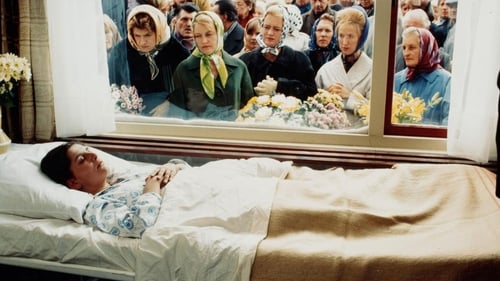
Editor
Armin is in crisis. One fateful day he discovers he is infertile and has been throughout his life. From this he discovers his first wife, Monika, was unfaithful before she died. How else could she have the child that Armin always thought was his? His paranoia drives him to find the truth.

Editor
The Detour is about a young woman travelling through Europe in search of herself and the truth of life. It is based on meetings between goatherd Joanna and Austrian author and playwright Thomas Bernhard. Joanna is lost after her boyfriend dumps her at a Women's Relief Centre in Rotterdam. She works in a library and visits the theatre, where she first sees a play by Thomas Bernhard. Bernhard's philosophy permeates Joanna's thoughts. When Camille invites her to visit the French Pyrenees, she accepts. On the way, she decides to visit Bernhard in Austria. She attempts to start a relationship with him and thereby finds herself.

Editor
The story of a summer dress and those who have to do with it, especially the train conductor (played by van Warmerdam, the director). The dress functions as catalyst for the whimsical events, which turns out to be either tragic or hilarious.

Editor
Con la llegada de unos misioneros al barrio de Los Norteños, Tomas, un joven soñador, da rienda suelta a sus fantasías africanas.

Editor
Anónimamente, Fermín abandona su escondite bajo tierra en las vías del subterráneo. La dictadura es seguida por democracia, pero su fuerte luz enceguece a Fermín: se siente fuera de lugar. En la comisaría, su anonimato es total y ni siquiera recuerda su propio nombre. Los archivos lo relacionan con un pasado de trece años de oposición política ilegal. Si mantiene silencio sobre los crímenes cometidos durante la dictadura, será un hombre libre. La mujer a la cual le había prometido casamiento ya no lo reconoce y piensa que está muerto.

Editor
En el amor es una mujer gorda, Alejandro Agresti, retrata la desesperación de la generación de jóvenes que sobrevivió a la sangrienta dictadura militar que dominó la Argentina entre 1976 y 1983. A través de la historia de un periodista que, dolido porque su novia lo ha abandonado, se deja caer en desgracia y marcha hacia la locura, Agresti pinta con resentimiento y desencanto una Buenos Aires vacía de ideales que presiente la llegada del neoliberalismo de fin de siglo.

Editor
Mientras busca el tema para su nueva novela, un escritor se relaciona con diversos personajes con los cuales interactúa.





